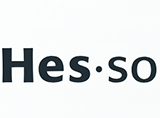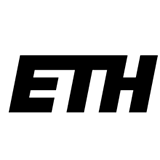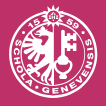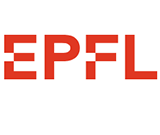Detailed introduction of Swiss Federal Institute of Technology Lausanne:
Introduction and Overview
Overview of the school: Swiss Federal Institute of Technology Lausanne is a public research university located in Lausanne, Switzerland, focusing on the fields of natural sciences and engineering. It is one of the two federal institutes of technology in Switzerland.
Student situation: The school has a total of about 12,432 students, of which international students account for 64%, and the ratio of students to faculty is 12.5:1.
History
The school originated from the Lausanne Special School in 1853, with only 11 students at that time.
In 1869, it became the technical department of the Lausanne Public Institute.
Later, the Lausanne Institute developed into the University of Lausanne, and the school gradually developed into an independent federal institute of technology.
Foundation time
Officially established in 1969, but its origins can be traced back to 1853.
School strength
Faculty: It has many outstanding professors and researchers who have profound academic attainments and rich teaching experience in their respective fields, providing students with high-quality education and guidance.
Teaching resources: The school is equipped with advanced teaching facilities and scientific research equipment, such as nuclear reactors, tokamak nuclear fusion reactors, Blue Gene/Q supercomputers, and P3 biohazard facilities, which provide good conditions for students' learning and research.
Scientific research results: A large number of cutting-edge research works have been carried out in the fields of engineering, computer science, life sciences, etc., and a series of important scientific research results have been achieved, making important contributions to promoting the development of related fields. For example, the school has participated in ambitious international research projects such as the Blue Brain Project and the Human Brain Project, dedicated to rebuilding mammalian and human brains through digital technology.
Institutional nature
Public university, directly managed by the Swiss Federal Government.
Educational philosophy
Focus on cultivating students' innovative and practical abilities, and encourage students to actively explore and solve practical problems in academic research and engineering practice.
Emphasis on interdisciplinary education and research, promote exchanges and cooperation between different disciplines, and cultivate talents with comprehensive literacy and global vision to better cope with complex scientific and technological challenges.
Key laboratories and disciplines
Key laboratories:
Nuclear reactor CROCUS: used to carry out nuclear energy-related research and teaching activities.
Tokamak nuclear fusion reactor: Focuses on research in the field of nuclear fusion and explores solutions for future clean energy.
Blue Gene/Q supercomputer: Provides powerful computing support for large-scale scientific computing and data analysis, and promotes research progress in multiple disciplines such as computer science, physics, and biology.
Key disciplines:
Engineering: Covers multiple professional directions such as civil engineering, chemical engineering, electrical engineering, mechanical engineering, and aerospace engineering. It enjoys a high reputation internationally. Its engineering education and research are closely combined with practical applications, and it has cultivated a large number of outstanding engineering and technical talents.
Computer Science: It has in-depth research and teaching in the fields of computer theory, artificial intelligence, and data science. The research results of this discipline have had a wide impact in the international academic and industrial circles, providing students with cutting-edge computer science knowledge and practical opportunities.
Life Sciences: Including majors such as biological sciences and life science engineering, the school has carried out extensive research in cutting-edge fields of life sciences such as biomedical engineering, molecular biology, and neuroscience, and is committed to solving major problems in life sciences and promoting the development and application of life science technologies.
Physics: It has outstanding research results in theoretical physics, condensed matter physics, quantum physics, etc., providing students with in-depth theoretical education and experimental research opportunities in physics, and cultivating many outstanding physics professionals who have important influence in academia and related fields.
Department Settings
The school has a total of 7 colleges, as follows:
School of Architecture: Provides education and research in architectural design, urban planning and other majors, and cultivates architectural professionals with innovative thinking and practical ability.
School of Civil and Environmental Engineering: Focuses on teaching and scientific research in the fields of civil engineering, environmental engineering, etc., and is committed to solving key problems in infrastructure construction and environmental protection.
School of Computer and Communication Sciences: Covers majors such as computer science and communication engineering, and has carried out cutting-edge research and teaching in computer technology, network communication, information processing, etc.
School of Humanities: Provides courses and research projects in the fields of humanities and social sciences such as literature, history, philosophy, and language, and cultivates students' humanistic literacy and cross-cultural communication skills.
School of Basic Sciences: Including basic disciplines such as mathematics, physics, and chemistry, it provides students with a solid basic theoretical education in natural sciences, and also carries out in-depth research in the field of basic sciences.
School of Life Sciences: Covering majors such as biological sciences, biotechnology, and biomedical engineering, the school is committed to research and talent cultivation in the field of life sciences, and promotes the innovation and application of life science technologies.
School of Engineering: Covering majors in multiple engineering fields, such as mechanical engineering, electrical engineering, and chemical engineering, the school focuses on cultivating students' engineering practice ability and innovative spirit, and has provided a large number of excellent engineering and technical talents for the industry.
School of Technology Management: Focuses on education and research in the fields of technology innovation management, corporate strategic management, etc., and cultivates compound talents with technical background and management capabilities.
Ranking
32nd in THE World University Rankings in 2025.
16th in QS World University Rankings in 2023, 14th in both 2022 and 2021.
41st in THE World University Rankings in 2023, 40th in 2022, 43rd in 2021.
69th in U.S. News & World Report Best Global Universities in 2023, 70th in 2022, 58th in 2021.
Expenses
Tuition fees: Tuition fees for undergraduate courses are approximately CHF 633 per semester, and tuition fees for master's programs vary depending on the major, generally between CHF 633 and CHF 919 per semester.
Living expenses: The cost of living in Lausanne is relatively high, and students need about CHF 15,000 to 20,000 per year, including accommodation, food, transportation, books, etc.
Campus
Main campus: Located in Ecubrense, Lausanne, on the shore of Lake Geneva, the campus has a beautiful environment and modern architectural style. The campus is fully equipped with teaching facilities, scientific research laboratories, libraries, etc., providing students with a good learning and research environment.
Satellite campus: The school has satellite campuses and facilities in Sion, Neuchâtel, Geneva, Fribourg and Ras Al Khaimah, expanding the scope of the school's education and research.
Cultural life: The main campus often hosts cultural activities such as music festivals to enrich students' extracurricular life. In addition, there are two museums on campus, namely Musée Bolo and Archizoom, which provide a place for students and the public to exchange art and culture.
-

University of Applied Sciences and Arts of Western Switzerland
-

University of Basel
-

Swiss Federal Institute of Technology Zurich
-

University of Geneva
-

University of Bern
-

Università della Svizzera Italiana
-

University of Lausanne
-

Franklin University Switzerland, FUS
-

Bern University of Applied Sciences
-

University of St. Gallen
-

Mesoamerican University
-

Istmo University
-

Mariano Galvez University of Guatemala
-

Regional University of Guatemala
-

Galileo University
-

Francisco Marroquín University
-

Rafael Landívar University
-

University of the Valley of Guatemala
-

University of San Carlos of Guatemala
-

Technological Institute of Tlaxcala Plateau
-

Golfo University
-

Technological University of South Sonora
-

Technological University of Huejotzingo
-

Tizimín Institute of Technology
-

Chilpancingo Institute of Technology

